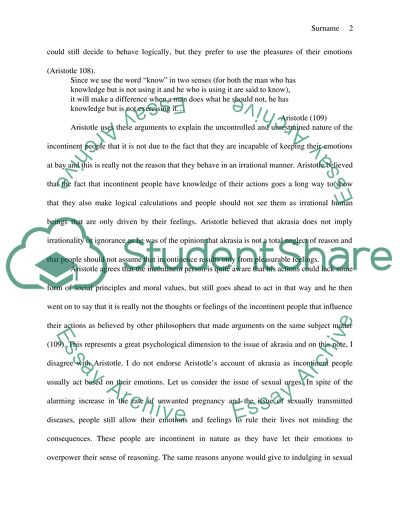Retrieved from https://studentshare.org/philosophy/1578586-what-is-akrasia-incontinence-according-to-aristotle-in-book-7-of-nicomachean-ethics
https://studentshare.org/philosophy/1578586-what-is-akrasia-incontinence-according-to-aristotle-in-book-7-of-nicomachean-ethics.


